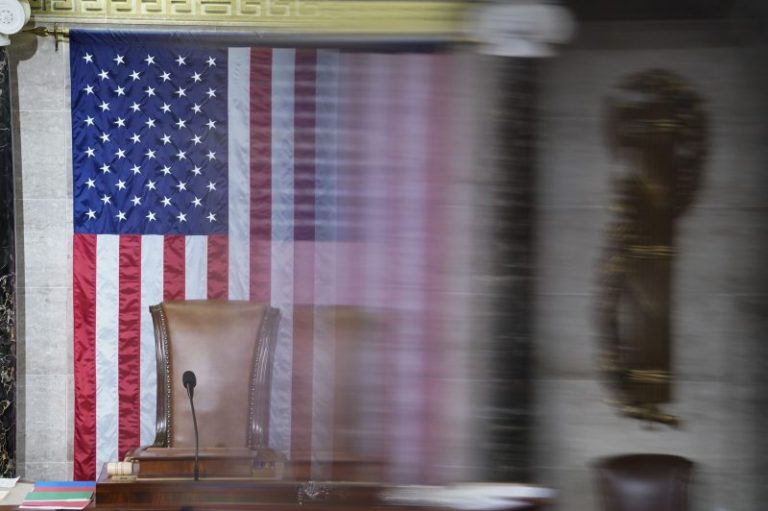The first protracted contest for speaker of the House of Representatives in a century has highlighted a potential cascade of dysfunction if one isn’t chosen.
Choosing a speaker is the first order of business when any new Congress meets. The speaker then swears in all members-elect; there are no representatives in Congress’s lower chamber until a speaker is appointed.
Understanding the House speaker’s role
1/3
End of carousel
Republicans’ current standoff, in which a hard-right minority is pushing to sink the would-be speakership of California Republican Kevin McCarthy, has stalled many of the chamber’s usual processes, ranging from the most pressing business to basic administration.
Here’s a rundown of just some of the things Congress cannot do because it technically might not exist:
Only representatives can introduce legislation on the floor of the House, meaning the chamber can’t carry out its basic duty of deliberating on and passing laws. In fact, until members are sworn in, they can’t vote on the rules that will govern the chamber or create committees (focused on topics from taxes to education).
The House can’t wield its usually broad powers to investigate federal agencies and matters of public interest until the chamber is properly formed. That means lawmakers can’t issue subpoenas, call government officials, corporations or expert witnesses into hearings, or launch investigations into issues their constituents may care about. By extension, the deadlock also stalls House Republicans’ wish list of investigations.
Because lawmakers derive their security clearances from their official positions, the representatives-elect can’t attend the classified and top-secret briefings they’d need to make informed decisions about policy. (They can’t determine policy until they are sworn in, either.) Some lawmakers have said they’ve already been turned away from high-priority meetings.
Amid the turmoil, House committee staffers were informed that if House rules aren’t finalized by Jan. 13, committees will not be able to process payroll or student loan repayments.
The stalemate comes with real risks. If a crisis were to occur domestically or abroad, for instance, the House would not be able to respond, as it did in 2013 and 2020 by passing relief packages responding to Hurricane Sandy and the coronavirus pandemic.
House staffers received mixed messages on whether they can help their constituents while the House is not in order. Congressional staffers were initially told they cannot respond to these routine requests (such as emergency family situations surrounding passports, visas and immigration, as well as issues navigating veteran and student programs). Later guidance called this a “miscommunication” and “a result of the ongoing chaos created by the House Republicans’ failure to elect a Speaker.”
But the situation is providing some moments of entertainment that aren’t usually caught on camera. That’s led to some gags about the activity on the House floor, as well as points of confusion for the administrators tasked with overseeing the chamber while its in stasis.
While it’s unlikely, for each day the House is in limbo, the country inches closer to regulatory and financial cliffs. The December budget funds the government through September, meaning that, despite the breakdown in the House, the federal government could still operate until then.
The multiday deadlock also raises the specter that such a standoff could happen again, with perhaps far greater implications. If the House failed to elect a speaker after a presidential election, for instance, there would be no way for the House to officially count the states’ electoral votes, as it has historically done, along with the Senate, on Jan. 6.

